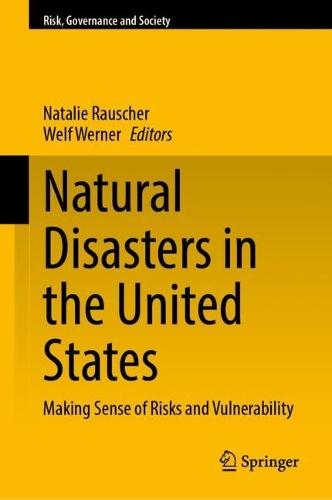Full Product Details
Author: Natalie Rauscher ,
Welf Werner
Publisher: Springer International Publishing AG
Imprint: Springer International Publishing AG
Volume: 22
ISBN: 9783031964350
ISBN 10: 3031964357
Pages: 270
Publication Date: 27 September 2025
Audience:
College/higher education
,
Professional and scholarly
,
Tertiary & Higher Education
,
Professional & Vocational
Format: Hardback
Publisher's Status: Active
Availability: Manufactured on demand

We will order this item for you from a manufactured on demand supplier.
Author Information
Natalie Rauscher worked as a post-doctoral researcher in the field of political science at Heidelberg University, Heidelberg Center for American Studies (Germany). Her research includes discourses on the future of work, American philanthropy, the impact of natural disasters in the United States and the global issue of the polycrisis. Natalie Rauscher has been a guest scholar at Kellogg Institute for International Studies, Notre Dame (USA) and is a member of the WIN-Kolleg of the Heidelberg Academy of Sciences and Humanities. Her work has been published with Springer International Publishing, and in journals like Journal for Political Science, Policy Advice and Political Consulting, or German Political Science Quarterly. Since 2025, Natalie Rauscher is the managing director of the Graduate Academy at Würzburg University. Welf Werner is the Director of the Heidelberg Center for American Studies (Germany) and was trained in economics, finance, management, and economic history at the Freie Universität Berlin (Germany) and Indiana University in Bloomington, Indiana (USA). Before joining the faculty of International University Bremen (Germany) as a Professor of International Economics in 2004, he taught U.S. economic policy and history as a lecturer and assistant professor at the John F. Kennedy Institute for North American Studies, Berlin (Germany). Welf Werner received his Ph.D. and venia legendi from the Economics Department of the Freie Universität Berlin in 1992 and 2003, respectively. He was a John F. Kennedy Memorial Fellow at Harvard University’s Center for European Studies (USA) in 1994 and returned to the U.S. in 1997 as a research fellow at both Johns Hopkins University’s School of Advanced International Studies (SAIS), Washington D.C. (USA) and George Washington University, Washington D.C. (USA). In February 2018, Welf Werner was appointed Professor of American Studies at the Faculty of Economics and Social Sciences at Universität Heidelberg and director of the HCA. His research and teaching focus on U.S. domestic and foreign economic policies while giving due regard to their intertwining with history and political science. Specific research interests have touched upon fields such as international trade in services, financial market globalization, monetary regime change, natural disasters and international risk management, globalization and inequality, welfare state reform, and the economic determinants of populism.



